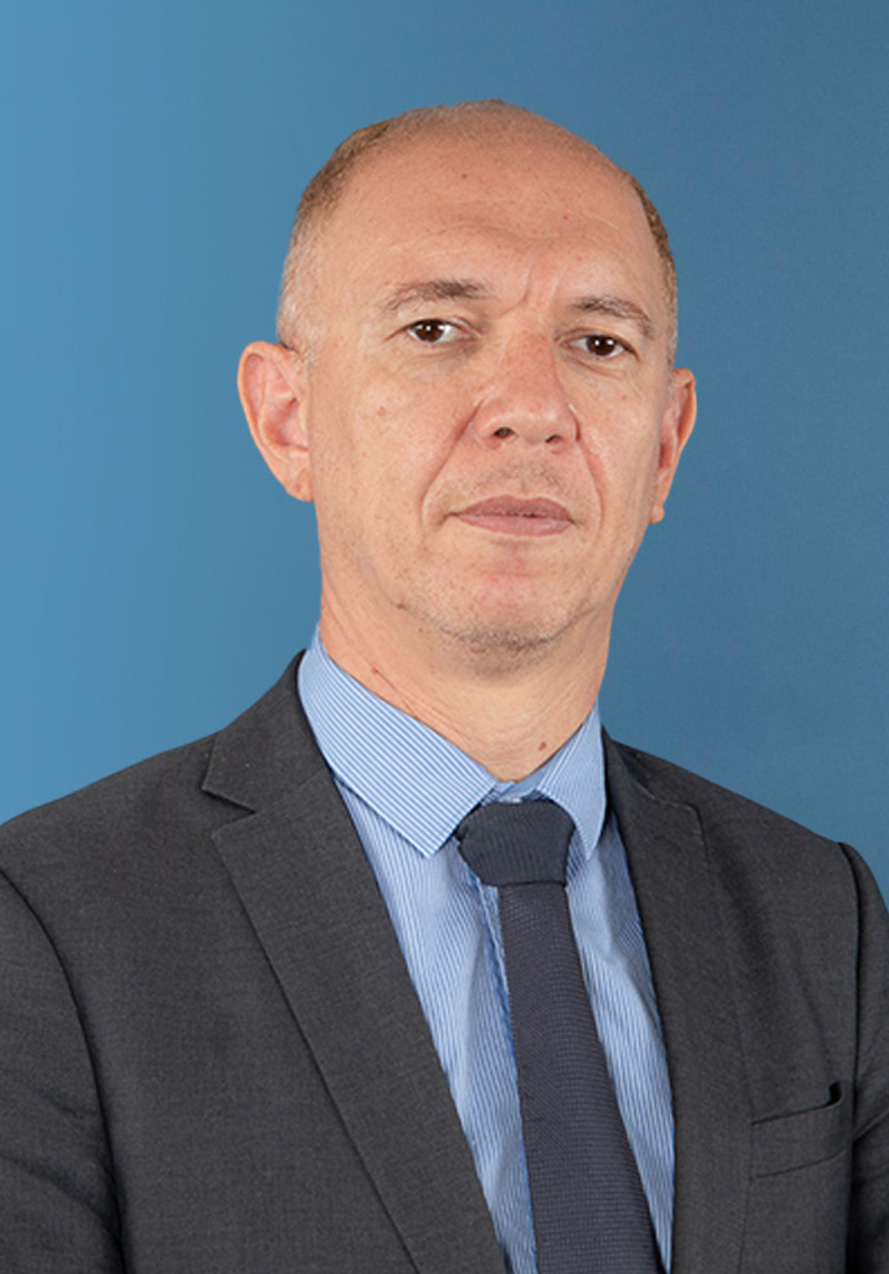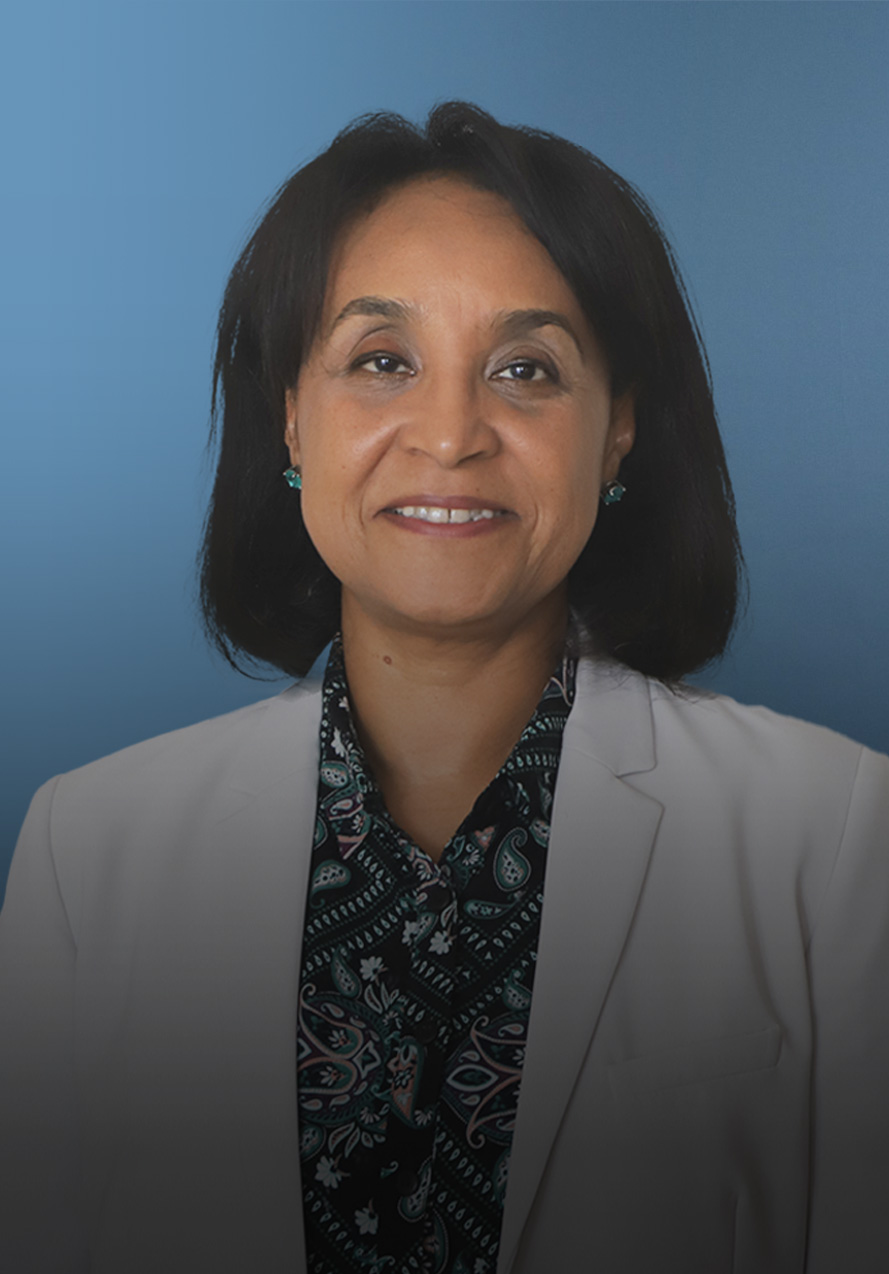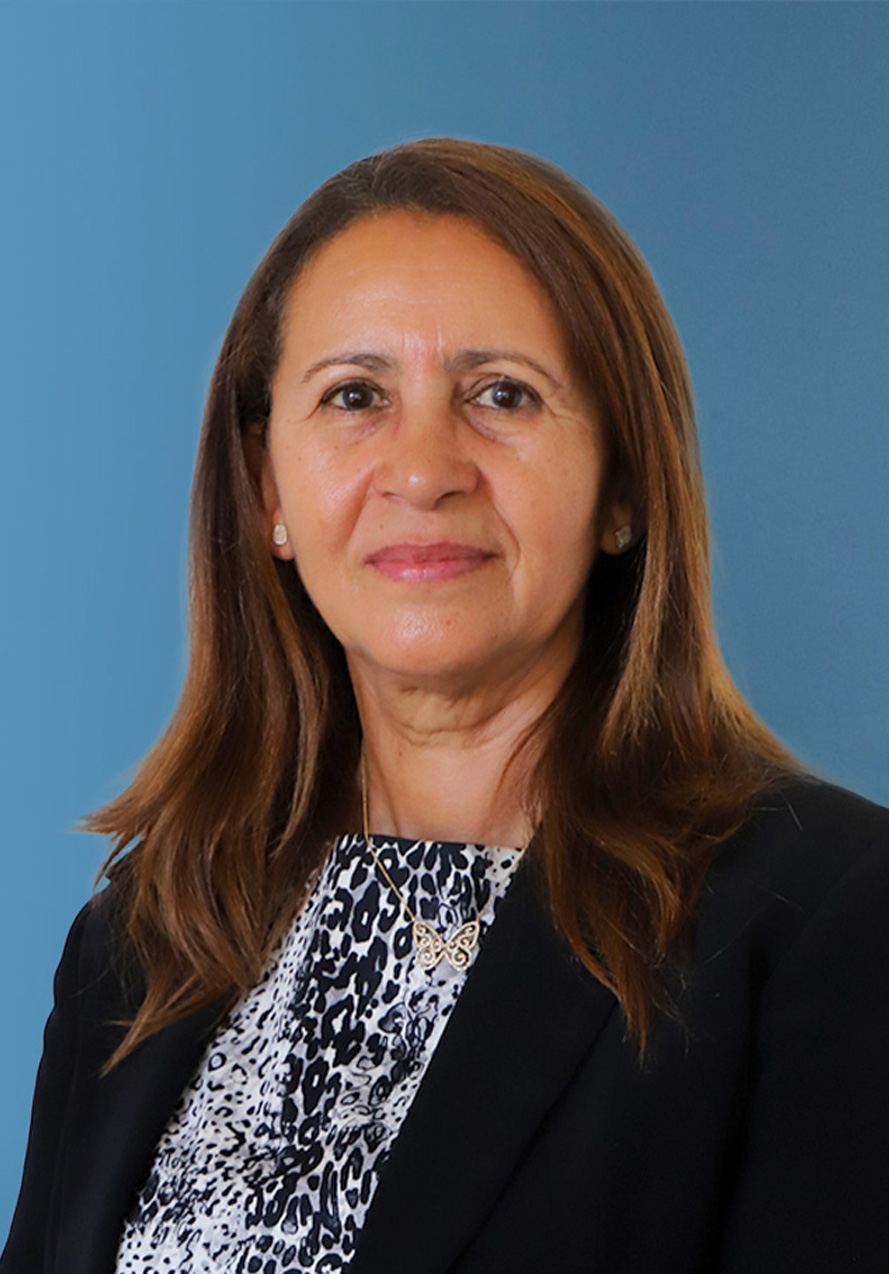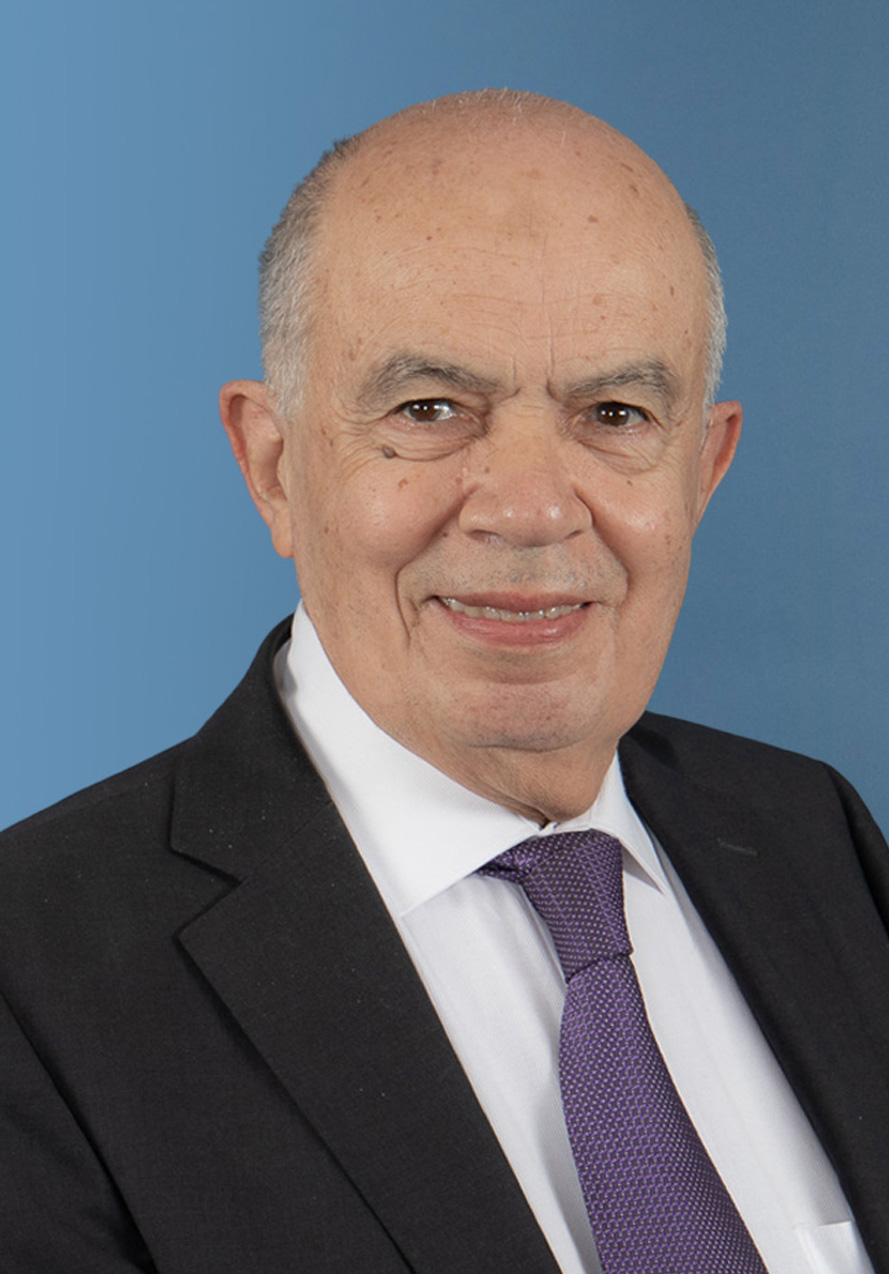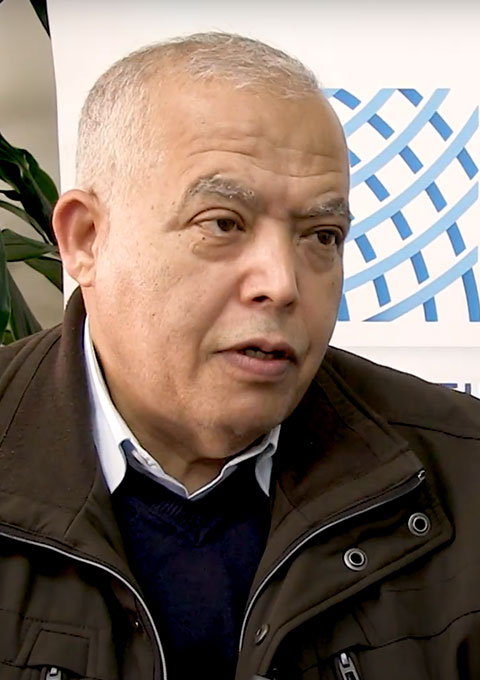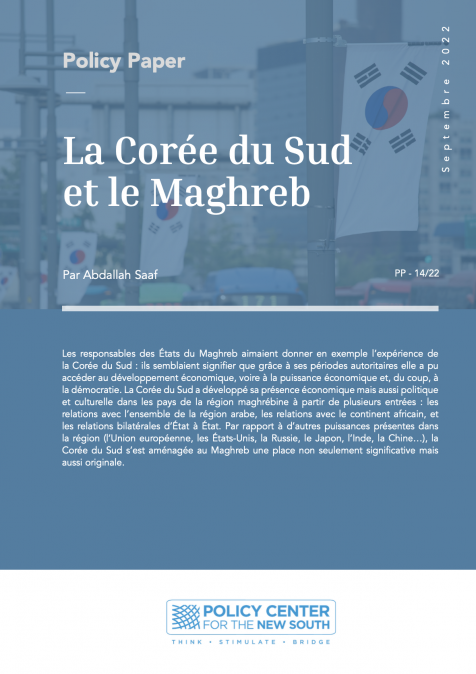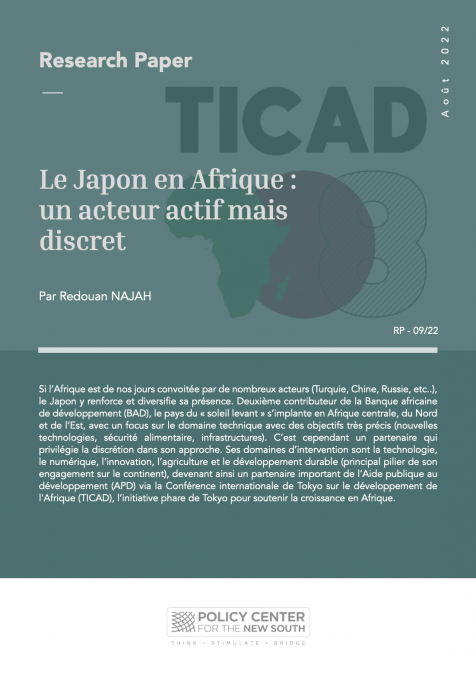Relations between Rabat and Seoul have been in a state of considerable flux in every aspect since the establishment of diplomatic relations between the two countries in July 1962. The Korean embassy in Rabat is Seoul's first permanent diplomatic representation on the African continent. In addition, its economic model, based on the nexus of "planning in the industrial and financial fields/ priority to education and work" is considered with attention by Morocco, both by the official authorities and by the public opinion, with which it shares more characteristics than one might think: a long-standing identity, a role of impetus of the State in economic matters, a strong position on economic sectors. Seoul, which pursues a foreign policy that synthesizes economic internationalism and geopolitical isolationism, geopolitically sees Morocco as a privileged entry point for its investments in Africa. The Korean geopolitical doctrine is that Seoul deploys in regions with development potential and a certain political stability, in order to stimulate its investments and economic expansion. Morocco, which since 2011 has been undergoing significant transitions, further strengthened by its African economic policy, appears to Seoul as a gateway for Korean companies to Africa. Similarly, Morocco and Africa [in general] have much to learn from the Korean experience, and potentially much to gain from advanced cooperation between the two sides. This is especially true as the structural transformation of African economies, including Morocco’s, promises to be crucial to the realization of aspirations for African market integration and prosperity based on inclusive growth and sustainable development. Indeed, the Korean experience should be instructive in terms of strengthening the competitiveness of sectors, especially export, and its links with East Asian countries should multiply the opportunities for access to export markets and rise in global value chains. By organizing this event the year of the 60th anniversary of the establishment of diplomatic relations between Morocco and Korea, the PCNS and KIEP wish to contribute to a better understanding of the relations between Rabat and Seoul, while strengthening dialogue and exchanges between Moroccan and Korean institutions, with a view to encouraging them to turn more towards our two countries which constitute excellent points of entry into Africa and East Asia.

